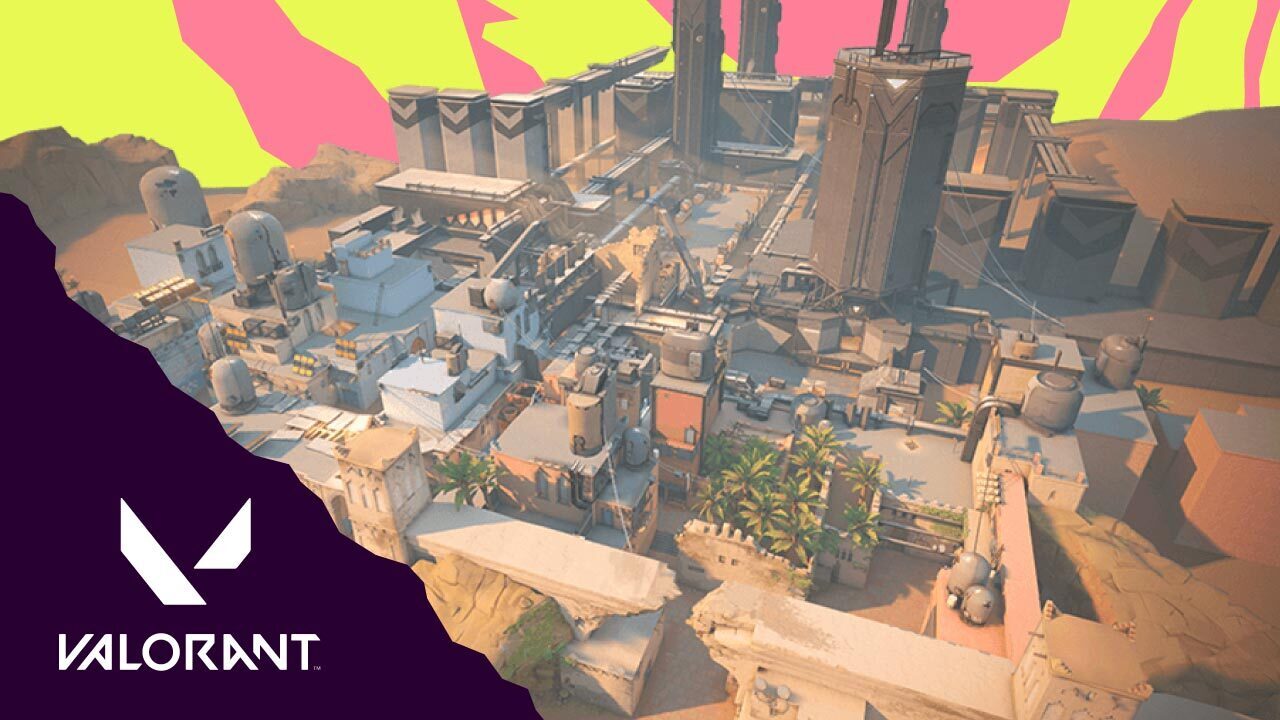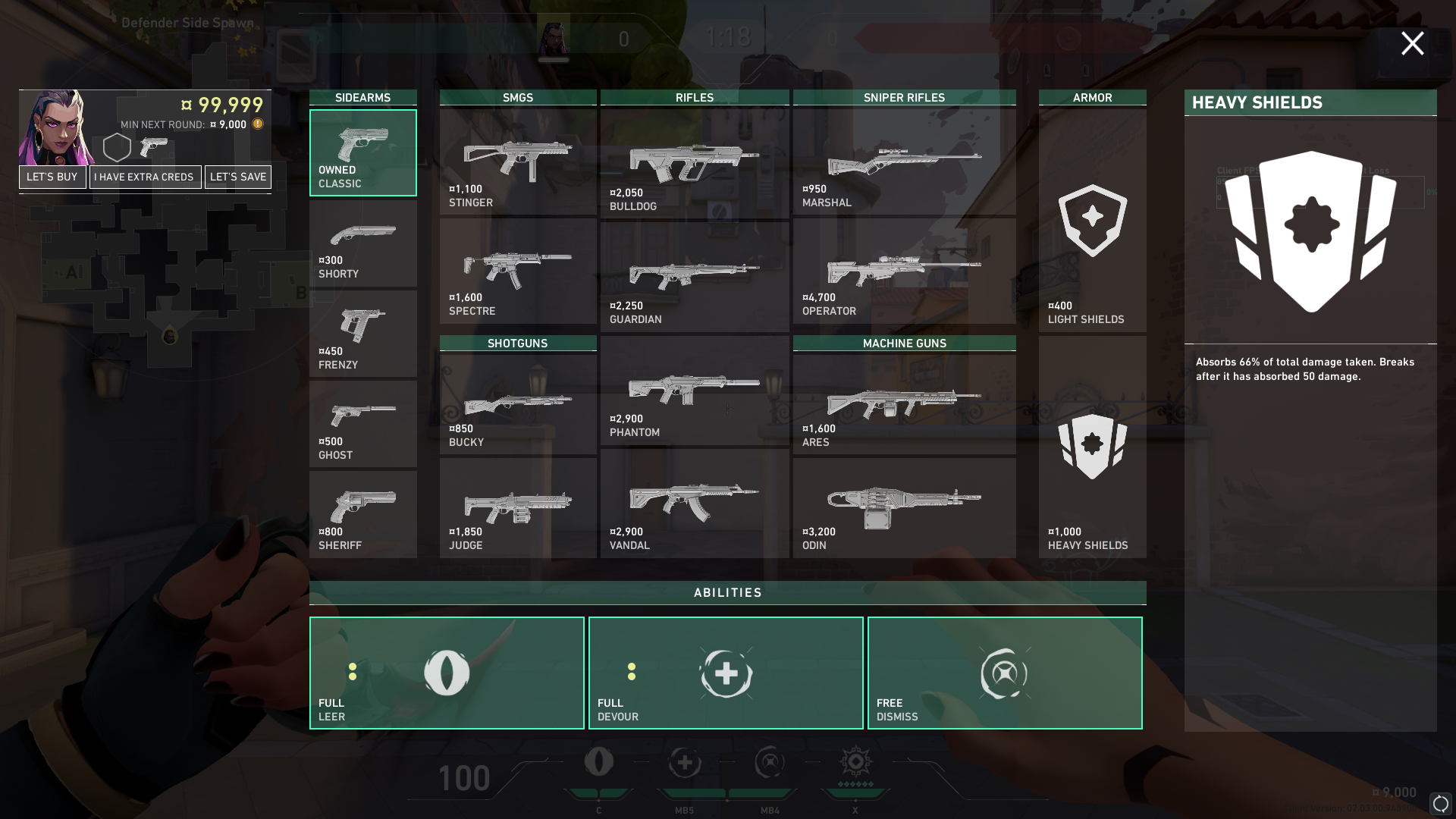 VALORANT is a Tactical First-Person Shooter (Tac-FPS) emphasizing precise gunplay, set plays, and teamwork. One of the key aspects of the game is gaining and maintaining an economic advantage over the opposing team. In this guide, we’ll look at the most efficient way to keep the team’s economy going.
VALORANT is a Tactical First-Person Shooter (Tac-FPS) emphasizing precise gunplay, set plays, and teamwork. One of the key aspects of the game is gaining and maintaining an economic advantage over the opposing team. In this guide, we’ll look at the most efficient way to keep the team’s economy going.
VALORANT Economics 101
In VALORANT, having a steady economy almost always equates to securing rounds. To gain an economic advantage over the opposing team, attackers must always think of ways to plant the Spike (VALORANT’s bomb) in the bomb site. Defenders, on the other hand, may have it rough because their objective is to stall and eliminate the attackers from entering the site. The intricacies of these interactions will be elaborated later in this article.
Every player in Attacking and Defending teams will start with 800 Credits (called “Creds” in the game) and will scale according to various factors listed after this paragraph. 9,000 Creds is the limit for all players, and will not accumulate more than this amount throughout the game. Keeping a good economy means reaching a decent amount to buy a powerful gun, full shields, and complete utilities.
For reference, the list below is the “objectives” in VALORANT to add Creds to the players and the team.
- Spike Plant (Attackers): 300 Creds
- Player Eliminations: 200 Creds per enemy
- Round win: 3,000 Creds
Losing rounds get complicated because of how Creds are allocated. In general, this is how Creds are distributed when losing:
- Round loss: 1,900 Creds
- 2nd straight round loss: 2,400 Creds
- 3rd straight round loss – onwards: 2,900 Creds
- When the losing team players are saving for the next round, the team only gets 1,000 Creds.
The last stipulation is tricky because newer players may forget that saving a sub-1000 Creds weapon does not grant them economic gain in the next round. Any secondary weapon, a Bucky, or a Stinger is not a good choice to save.
Pistol Rounds: Important?
Yes.
The pistol rounds are the most important in VALORANT. This determines the pace of the match because winning the pistol round makes the economy of the winning team rise so they can go for more economic damage to their opponents.
A core loadout of a Classic, half shield, and some utilities are optimal for most players. Those who want to gamble may opt for a Ghost (500 Creds) or Sheriff (800 Creds). But I do not recommend this for every pistol round. You may opt to save when your team is on a losing streak, and these save round(s) are often pistol rounds for your team until the team has saved up for better equipment. Pay attention to your and your team’s economy to determine the best route to maximize your economy. Which brings us to the question…
When to Save For Better Weapons
One of the main “win conditions” of teams aside from attacking and defending the bomb site is to get an upper hand with weapons and utilities. A perfect example of this is the win condition of the Chinese professional team, Edward Gaming, where their star duelist zmjKK (Kang Kang) has to have an Operator for them to gain an upper hand. To do this, Kang Kang saves up when needed. He gives away some rounds if the Operator is necessary for the match. Otherwise, he does well with a Vandal.
So, when do you save? When the team is at an economic disadvantage, with total Creds below 15,000, it is wise to save up and hope for a Thrifty round or lose it completely. To help you with an approximate Creds gain for yourself, there is a “minimum Creds next round” section in the Buy Round where you can see how much your loadout can affect your Creds gain for the next round.

For example, you have 5,000 Creds and want to buy a Vandal (2,900 Creds), full shield (1,000 Creds), and complete utilities (varies but not reaching 1000 Creds). The minimum Creds to be carried over to the next round may be as low as 1,000 Creds (first round loss) to about 3,000 Creds (round win) on top of the remaining balance you have in the current round.
Now, if you have a Sheriff, half-shield, and incomplete utilities, it is wise not to save them to gain at least 1,900 Creds the next round rather than 1,000 Creds if you save your weapon and utilities. This gives you an advantage because you may buy better weapons within 1,900 Creds, like Marshal, half-shield, and incomplete utilities.
Coordinating with teammates about spending always helps. When one of your teammates signals that you should “save,” “buy,” or “force,” follow their call. A possible Thrifty round is also a good highlight reel. Remember, the team’s economy is equally important as the player’s own economy. If you can be the “hero” who has a maximum loadout, then by all means, go for it. But, as a general rule, following a “save” call from teammates can bring your team an advantage for the next round.
Using Economic Knowledge to Your Advantage
A practical use for knowing how the economy works in VALORANT is as simple as knowing what options your enemies have with their Creds. For example, a Jett player in the opposing team whose down 2,000 Creds but has her ultimate may opt to go for a Classic, full shields, and some of her utilities. This ensures that her next round, if impactful, will be spent on an Operator.
Knowing who has the most impact on the team can also mean strategizing how to cripple their economy.
Having a good economy is important in VALORANT. It determines the pace of the match and how resourceful teams are in managing economic advantages/disadvantages. Knowing the basics of how VALORANT’s economy works will take your game sense to a new level. What do you think of VALORANT’s economy? How are you strategizing your in-game economy? Let us know.
Don’t forget to top up your VALORANT Points at Codashop. We have a fast and convenient way to purchase VALORANT Points. Just provide your Riot ID, the amount of VALORANT Points you want to purchase, and the method of payment you prefer. It’s simple, fast, and effortless.












